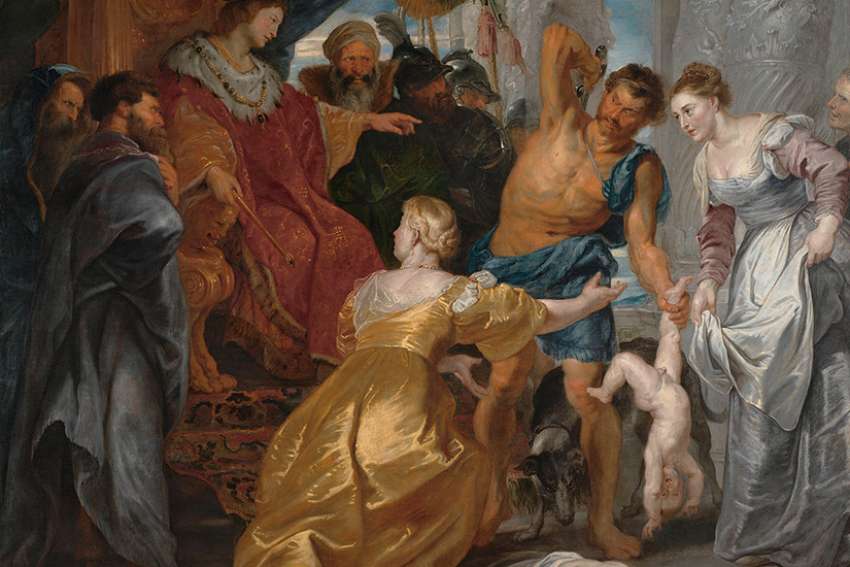What would we ask for if we were suddenly granted one wish? The responses people give to this question are interesting and revealing. Would it be world peace (almost a cliché) or assorted high powered toys and bling?
When God asked Solomon to name what he wanted, Solomon surprised and delighted God by asking for one thing only — the gift of wisdom. God granted him wisdom and more.
The Book of Wisdom supposedly contains the thoughts and words of Solomon, although we know that it was written centuries after him. It is a literary portrayal of Solomon the wise king.
In rejecting wealth, power and longevity, Solomon was seeking something far greater and infinitely more lasting and useful. Wisdom is not intelligence or knowledge, nor is it being filled with facts. We have more than enough knowledge, but we are destroying our world for lack of wisdom. It can be defined as the ability to discern right from wrong, truth from falsehood, and how to treat others in all situations.
The wise person does not judge by outward appearances, but can sense the depth and complexity of every person and situation. He or she knows when to speak and when to remain silent, and when speaking they choose their words with care. They are also inwardly free, not guided by fear, resentment, ignorance or intense desires and personal issues. Wisdom cannot be faked and it is not the sort of vacuous platitudes we find in TV gurus.
Do we know anyone fitting this description? Perhaps we do — and sometimes they are not the ones we would expect. They can be rich or poor, educated or unlettered, well-known or anonymous, male or female, as well as someone of your tradition or another.
According to some traditions, a mere handful of wise and enlightened individuals hold our poor world together — an intriguing thought. How does one become wise? There is no easy formula.
There are some ways we can begin the journey. Admitting that we don’t know everything or have all the answers is fundamental, and this is followed by a commitment to lifelong seeking and spiritual growth. Keep an open mind and be an observer of the human condition rather than a critic and judge. The healing and even the survival of our world depends on wise behaviour.
The word of God, which is similar to wisdom, sounds like a scary thing. It definitely can be. “Word” does not refer to what is written on a page, but to the dynamic will of God communicated to humans. The word can come to us in a variety of ways — Scriptures, nature, art, music, poetry, the events of salvation history, holy men and women, and of course, Jesus Himself.
One thing is certain: It does not come to make us feel good or to confirm our attitudes, prejudices and behaviour. It strips us of all illusion and untruth, the very things humans hide behind. It tells us the truth about ourselves, the world and God. No wonder it makes us nervous!
The Christian faith is not about “being good.” There are many people of other faith traditions or none that are moral and caring people. Unfortunately, religion is often reduced to moralism and correct behaviour. Not that morality is unimportant, but it is not the essence of our faith tradition.
The rich young man in the Gospel story asked Jesus — with a bit of flattery — what he had to do to inherit eternal life. Brushing aside the compliment, Jesus ran through the commandments, all of which the man had observed scrupulously. But the young man sensed there was more, and Jesus offered it to him.
He invited him to a life of wisdom and inner freedom. All he had to do was walk away from all the props from which he drew his identity and security. Sadly, he was not up to the challenge, like many of us.
The call to wisdom and transformation leads us on new paths, turning aside from the familiar and secure. The failure of so many institutions and structures in our own time is an invitation to let go of the past and follow the guidance of wisdom and the Spirit in new directions.


